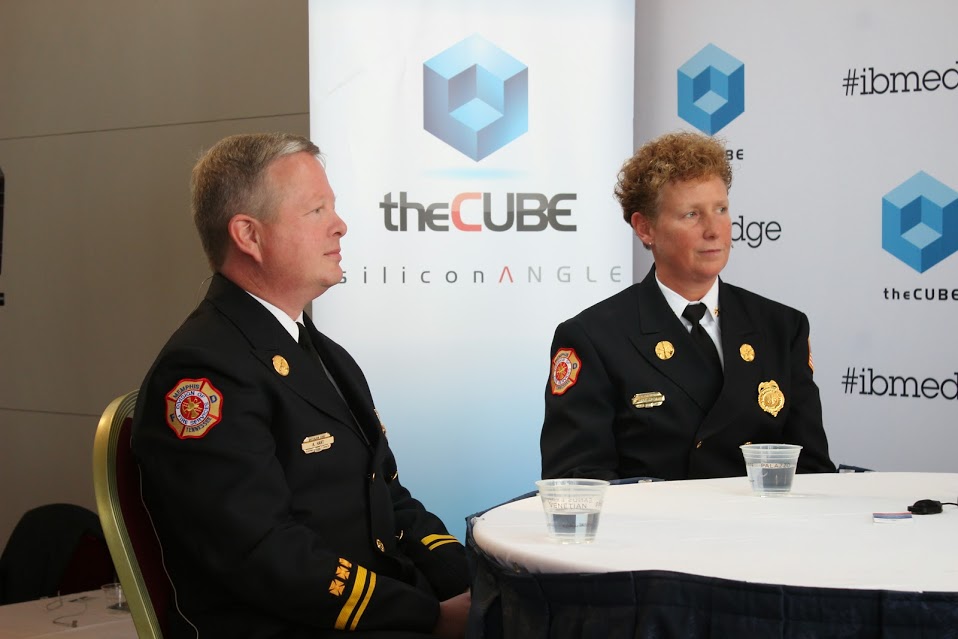 NEWS
NEWS
 NEWS
NEWS
 NEWS
NEWS
Two members of the Memphis Fire Department, division chief Gina Sweat and battalion chief Andrew Hart, sat down with theCUBE during IBM Edge2015 to talk about how data is improving EMS and rescue services. The two continually highlighted the importance of their mission and the citizens they serve — because when emergency response systems fail, lives are on the line, not just dollars.
As Sweat put it, “When people call us, they’re having probably one of the worst days of their lives. The citizens allow us in their homes … they invite us there to help them, and that’s what we’re really there for.”
But one of the biggest barriers to their effectiveness, Sweat said, is the number of non-emergency calls received by 911 and then responded to by ambulance and firetruck crews. “The Memphis Fire Department runs one of the largest EMS systems in the state of Tennessee, and we have a very high run volume,” she said. “Last year we made over 120,000 EMS calls alone. And what we found out was over 20% of those are actually non-emergencies. So what we would like to do in partnering with IBM is to find a way to bring all that data together and to offer a new way and better services to the citizens, by hopefully eliminating some of those non-emergency calls and offering services that citizens really need.”
Hart clarified, adding, “It’s not even that it’s a false alarm. It’s people that do have needs. It’s just they don’t realize the resources that are out there, or they don’t have resources. So they know, if I’m sick, I call 911, I go to the hospital. That’s all they know. So we’d like to get it changed to where we can get them to the correct path. If they need a doctor and to go to a clinic, we can take them there. If they need a dentist, go to a dentist office, we’ll make sure they go there. Or even better, if we can prevent some of these issues, start working on the prevention side, eliminate these calls altogether.”
Some cities have opted for solutions that involve billing citizens for “false alarms,” but Hart said the Memphis mayor has taken a different approach. “The mayor is really focused on, let’s provide the correct resources … Let’s steer [people] toward what they really need. We don’t want to abandon any of our citizens. We just want to get them to the correct resources.”
With IBM’s help, they’re hoping to use data to provide better routing for these calls and better services for their citizens, including non-hospital medical transportation, nurse consultations to determine the urgency of an emergency, and community prevention initiatives, which have worked well in reducing the number of fire calls across the city.
Have other members of the department been hesitant about the changes? On the contrary, Sweat said. “We do envision things changing in the future. Over 20 years in the fire service, I’ve seen tremendous change even in the technology and equipment that we wear. So I can only imagine the next 20 years are going to bring all kinds of changes that we probably can’t even imagine.”
But in the end, she said, these changes are about better serving all the citizens of Memphis, whatever their needs. “Firefighters have a calling. They want to help people, and it’s frustrating when people abuse the system or when [crews] miss a call that’s an actual emergency, and hopefully this will be a win for not only the citizens of Memphis, but also for the firefighters and paramedics in the department.”
Watch the full interview below, and be sure to check out more of SiliconANGLE and theCUBE’s coverage of IBM Edge2015.
THANK YOU